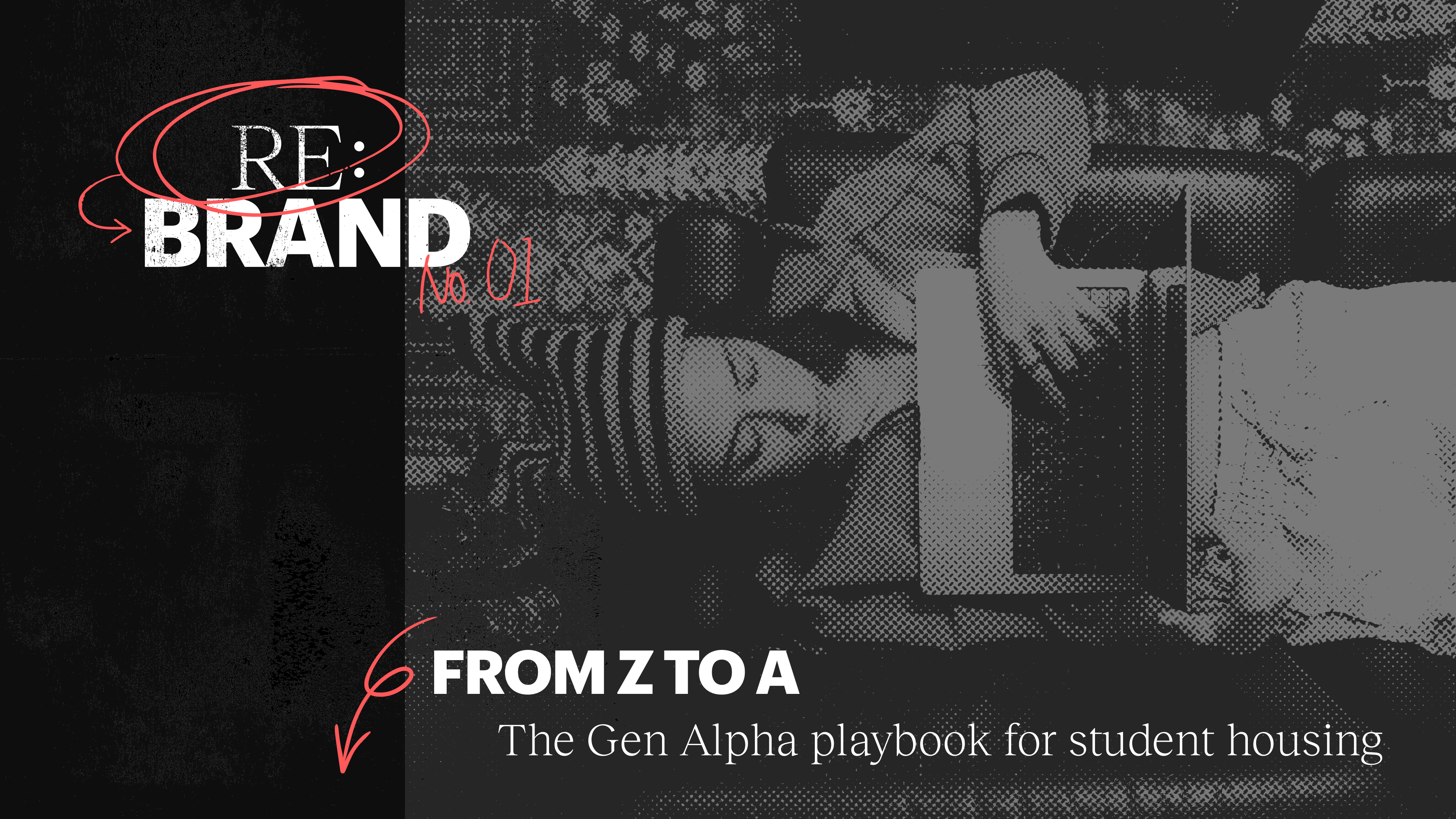
From Z to A: The Gen Alpha Playbook for Student Housing
Businesses succeed when they understand, serve, and anticipate their customer’s needs. But what happens when your customers’ needs are a moving target?
This can be the plight of student housing operators: just when you think you understand their needs, they graduate, freshly replaced by a new crop of students with different values, habits, and priorities. For a decade, student housing operators have been focused on Gen Z, the generation born between 1997 and 2012. Yet in a mere five years, the first of Generation Alpha, those born between 2012 and 2024, will be entering college, and it’s incumbent upon student housing operators to understand and anticipate the students of tomorrow, today.
While generational transition lines are inherently blurry, the edges of the blur between Gen Z and Alpha are becoming sufficiently distinct as to make some educated guesses about what Alphas will want from their student housing provider.
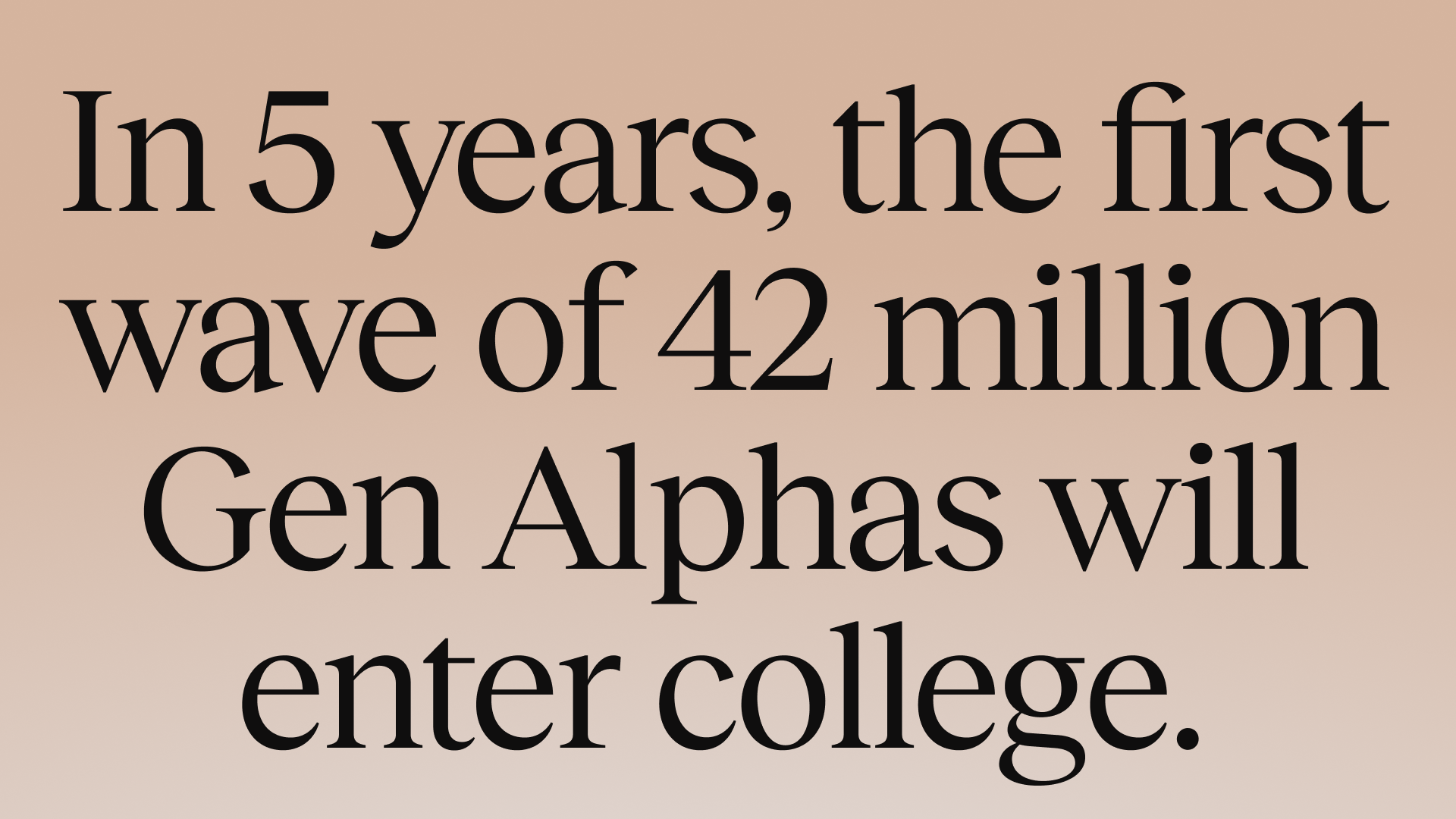
More Discriminating About Tech
For Gen Alpha, technology is not a novelty, but a backdrop of existence. According to the Annie E. Casey Foundation, “43% [of Alphas have] a tablet before age 6 and 58%..[have] a smartphone before the age of 10.” Alphas default to digital communication and operations, with an intuitive sense of good UX design, and a lack of patience for clunky or buggy digital interfaces.
Furthermore, Alphas will have a more nuanced relationship with tech than Zs. For one, they’re aware of the downsides of overuse, partly due to overdosing on online activity during the lockdown (more on that in a minute). Market insight firm GWI found Alphas are going offline more than Gen Z. GWI also found Alphas are more protective of their privacy than Gen Z. And it’s safe to say that as AI tech advances, Alphas will be more suspicious of being manipulated by advertisements and digital fakery.
Takeaway: Successful student housing brands will bring a tight digital game with excellent UX. They’ll avoid extraneous tech and superfluous apps. And they will not attempt to BS Gen Alpha, who’ve basically been bombarded with ads, data scraping, and deep fakes from the womb.
A Word About AI
According to one online survey, 49% of Gen Alpha children aged 7-14 are already using AI tools, and another survey found “88% of parents believe that knowledge of AI will be crucial in their child’s future education and career.” Suffice to say, AI will be the technology that most greatly shapes Gen Alpha’s interface with information, in much the same way social media did for Gen Z and the internet did for Millennials. Alphas will be natively chatbot conversational, and expect AI-optimized processes.
Takeaway: It’s a fair assumption to believe AI capabilities, competence, and adoption will grow by leaps and bounds in the next several years. For Alphas, this evolution will be quite normal. Student housing operators should embrace AI, integrating it into every touchpoint of their operations, from leasing onboarding to property management and beyond.
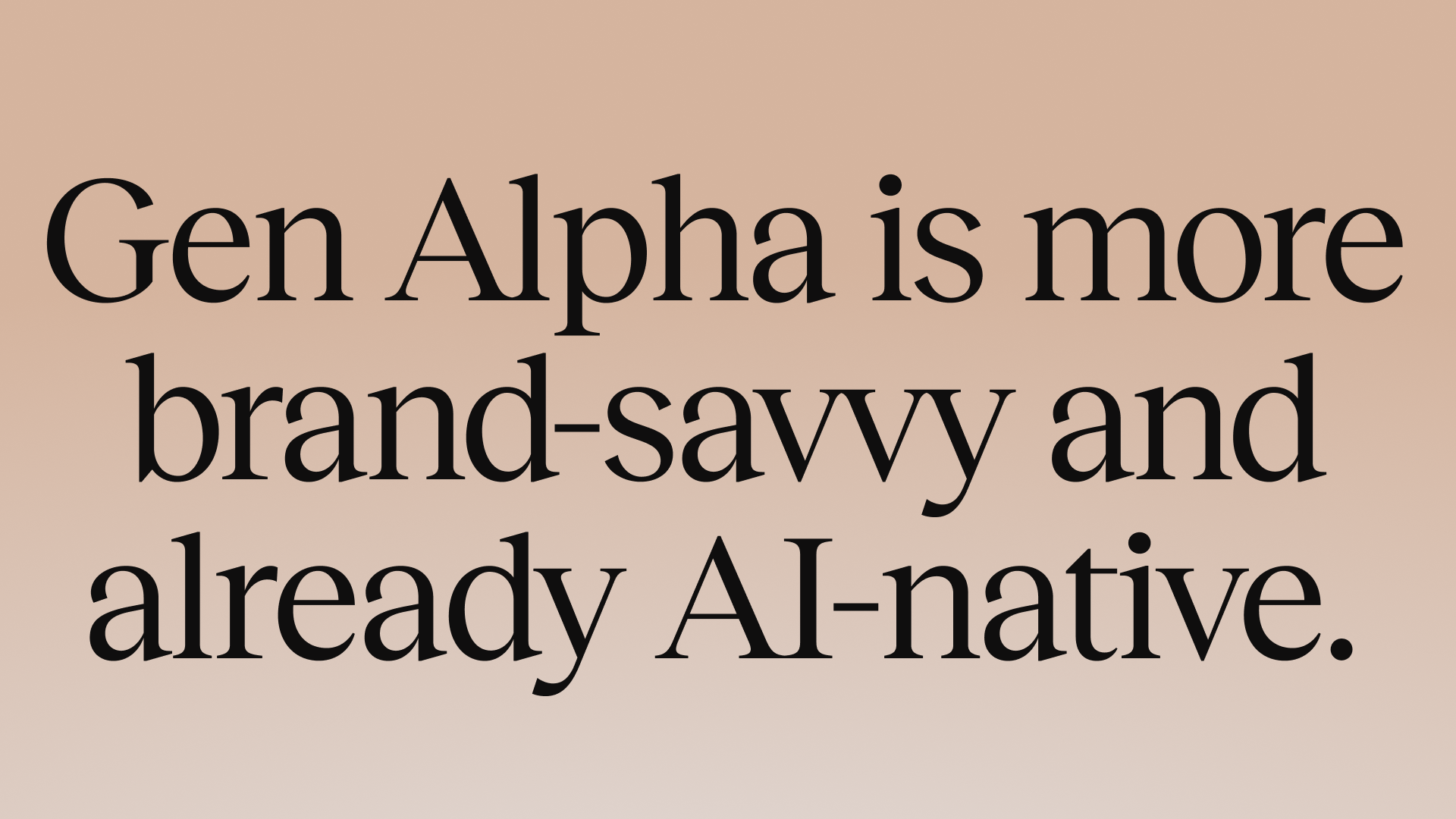
From TikTok to Roblox
Gen Alpha has a very different relationship with the online world than Gen Z, whose primary platforms are TikTok and Instagram. Though Alphas are on social media, it’s “not actually where they socialize,” according to Variety. For Alphas, games are where it’s at. “Roblox and Fortnite aren’t just entertainment for Gen Alpha; they’re where friendships are built and identities are expressed…These digital worlds have replaced group chats and casual hangouts, with avatars serving as extensions of personality and style,” also per Variety. No longer content towatchcreators, Alphas want tobecreators.
Takeaway: Social media presence (ads, content, etc.) might bepartof a successful online engagement strategy, but it can’t be all of it. Intrepid or large student housing operators may choose to wade into the gaming world, “creating challenges or missions users can complete for virtual prizes or recognition” per Variety, but doing this may be expensive and run a high risk of try-hardism. The better approach is to understand Alphas online use is always changing, and it often doesn’t track with previous generations. It’s best to create a diversified approach to online engagement, and, more importantly, create a product worth talking about no matter the platform.
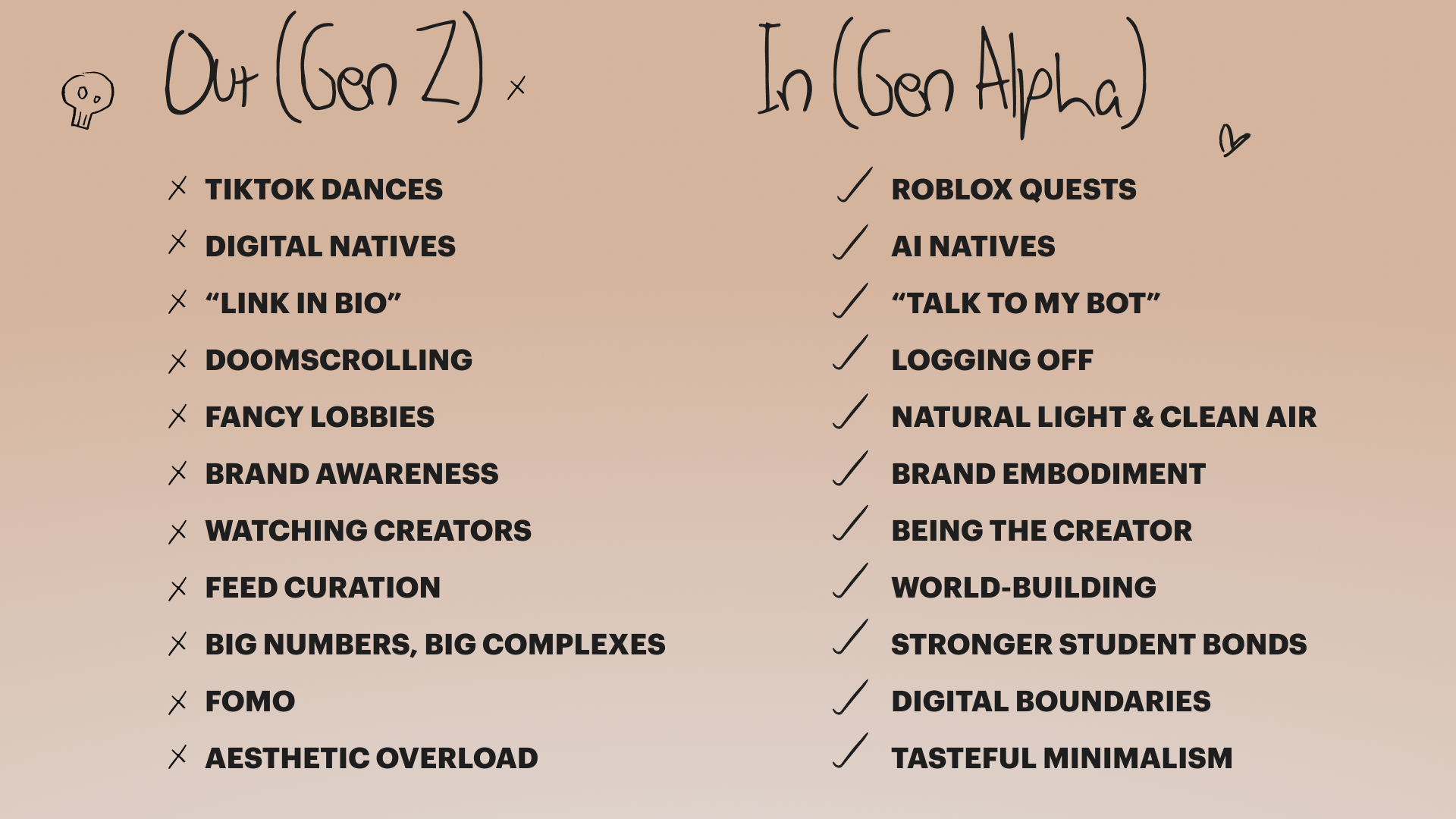
Fewer of them
There are roughly 69.3 million Gen Zs and around 42 million Gen Alphas. AI could also dramatically change the professional and therefore academic landscape, further eroding student housing market demand.
But fewer students doesn’t just mean less demand; it forces a rethinking of what student housing is.If the 2010s were about scale — mega-complexes and amenity wars — the 2030s may be about adaptability. With fewer beds to fill, operators may need to consider:
→ Flexible leasing models: Shorter lease terms that align with hybrid academic paths (think gap years, internships, study abroad, and online learning pauses).
→ Multi-use student spaces: Properties designed to flex between student housing, young professional co-living, and even faculty/graduate accommodations, smoothing demand across cycles.
→ Community-forward design: With a smaller resident base, differentiation won’t come from more square footage but from tighter-knit, experience-driven communities that support belonging and wellbeing.
→ Alternative revenue streams: Think beyond rent — from branded memberships (study lounges, wellness spaces, co-working) to integration with local retail and food partners.
Takeaway: Gen Alpha’s smaller population and changing orientation to career paths will shrink the traditional student housing pool. Operators who thrive won’t just market harder — they’ll rethink the model itself. The winners will be those who brand and program their assets not just as places to live, but as dynamic, multi-purpose environments that can flex with shifting demand.
WFH native
Many of Gen Alpha’s formative years were shaped by the pandemic lockdown and its aftermath. For them, remote schooling and parents with hybrid or fully remote professions are what they grew up with. As mentioned above, some of the consequences of this experience were a higher premium placed on offline activity. But it also means Alphas will be accustomed to, and expect, a life where there’s little separation between work —or studying —and home life.
Takeaway: While study rooms are a common amenity in most student housing buildings, they are often sterile and overly formal relative to the comfort of a bedroom or living room. Alphas are accustomed to a blend of work and home. Student housing operators may consider integration of workspaces into living units, with proper desks, Zoom backgrounds, and even converting bedrooms into in-unit breakout spaces.
A Different Definition of Self-Care
Recent years have seen a growing awareness of mental health. While Gen Z might have YOLO’d their way into a better mood, according to GWI, Gen Alpha is more likely to go outside and log off tech than pampering themselves and doomscrolling as Gen Z are prone to doing. They’re also more likely to turn to family and friends to meet their emotional health needs than Gen Z.
But “self-care” for Alpha goes beyond mental health. For this generation, wellness is holistic: it’s about the environment they live in, the balance they strike with tech, and the community that surrounds them. They’re as likely to see natural light, clean air, and shared green space as part of their wellbeing as they are meditation apps or scented candles.
Takeaway: Gen Alpha may be more interested in connecting than consuming, and they’ll expect housing that supports that. Operators can differentiate with thoughtful communal spaces, healthier environmental design (light, air, plants), and programming that fosters digital balance and authentic peer connection.
Thoughtful communal spaces will be more prized than premium services and lux finishes.
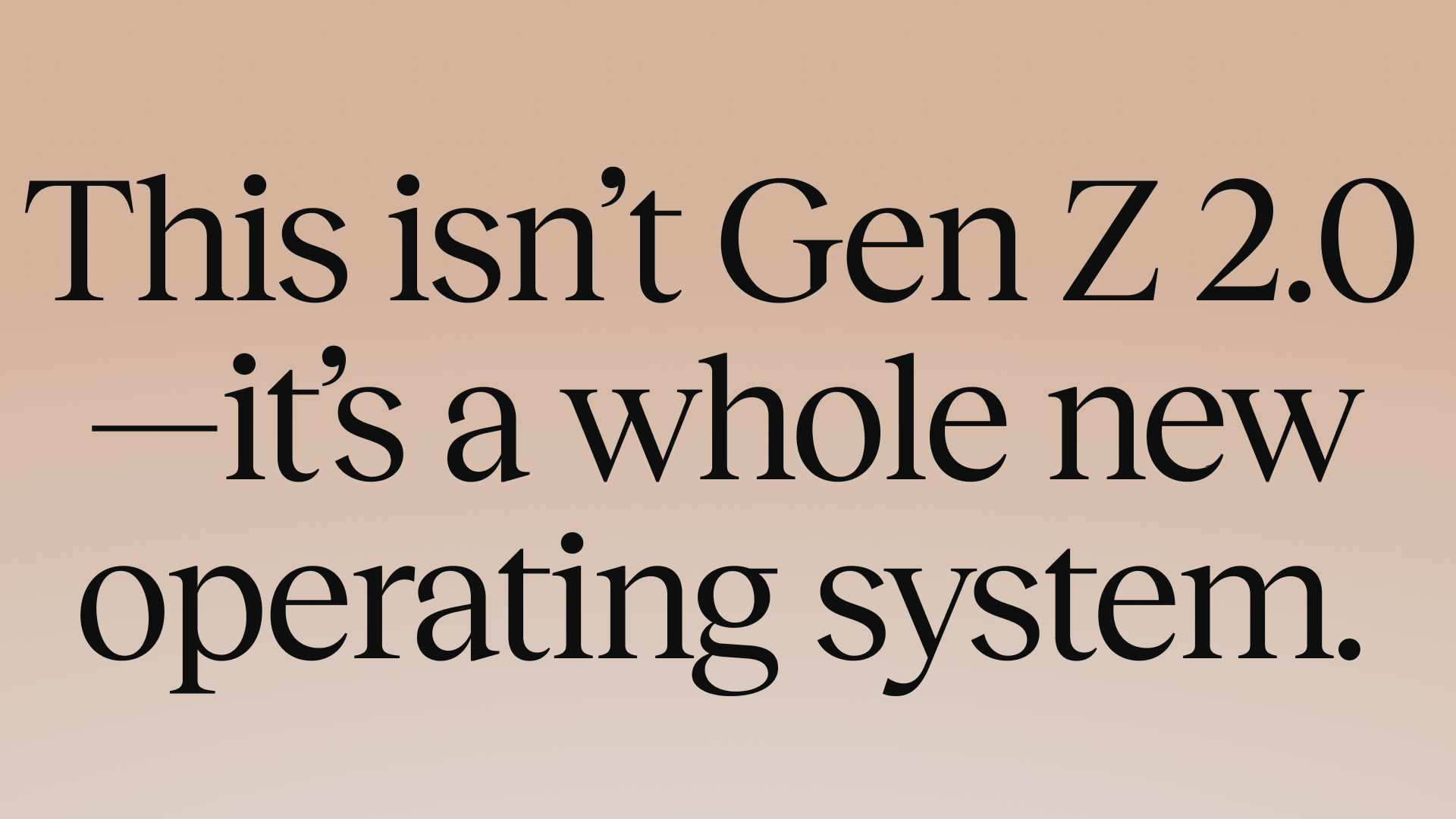
Brand Conscious
According to Razorfish, “Access to the internet has accelerated Alpha's brand maturity at a higher rate than previous generations.” Without parental gatekeepers determining what they should and should not like, Alphas will have an evolved sense of what a brand is.
But it’s more than just awareness. For Gen Alpha, brand is identity. This generation has grown up curating Roblox avatars, choosing Fortnite skins, and building their own digital worlds. The brands they align with are not passive preferences — they are active extensions of self. For Alphas, where you live isn’t just a functional choice, it’s a status symbol and a reflection of who you are.
That means student housing brands aren’t just competing on location or price — they’re competing on culture. A strong brand will become shorthand for a student’s values: is this place creative? ambitious? wellness-focused? luxury-minded? The properties that understand this will move beyond generic marketing into identity-driven branding.
Takeaway: Gen Alpha will evaluate student housing with the same brand-critical lens they apply to fashion, tech, and entertainment. Operators who treat brand as a strategic asset — not just a logo — will capture loyalty. The winners will craft identities students want to wear as part of their own, transforming student housing from a commodity into a cultural badge.
Gen Alpha will arrive on campus with fewer numbers, different expectations, and a sharper eye for authenticity. For student housing operators, that means competing not only on amenities and price, but on brand, experience, and cultural relevance. The future isn’t just about providing a place to live — it’s about creating a brand students want to belong to.
Gen Alpha’s expectations are already reshaping the future of student housing. The question is — will your brand evolve to meet them?

